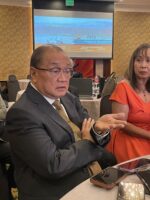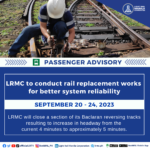Manuel Pangilinan, chairman of Philex Mining Corp., the country’s largest gold and copper producer, said Wednesday that ironic as it sounds, the success of green technologies needed to pursue global sustainability goals depend on the growth the mining industry.
“In many respects, sustainability rests on green technology—and by extension, reliance on mining would continue,” Pangilinan said in his keynote speech at The Mining Philippines Conference 2023, noting that many of the inputs to these cleaner technologies such as electric vehicles and solar panels are produced by the mining minerals and metals.
He said electric vehicles and the batteries that power them need nickel, graphite, aluminum, and copper while solar panels and wind farms require steel, arsenic, gallium, germanium, indium, and tellurium. Charging stations for EVs also require metals, added Pangilinan, chairman and chief executive of Manila Electric Co., the country’s largest power distributor and a major supporter of the shift to EVs.
“Yes, mining can be a threat to sustainability. But it also enables green technology to flourish. And because mining also offers jobs and profits, it presents the additional benefit of uplifting lives and welfare of our people,” Pangilinan said.
As the world enters a period when demand for resources increase as the global economy grows and population expands, he said the Philippines must take advantage of the natural resources it has to bolster gross domestic product and create more jobs.
“The Philippines missed the economic bus during the manufacturing cycle in the 50s and the 60s, and the export boom in the 70s and 80s. This time, we cannot miss this bus yet again, with our available mineral resource base,” Pangilinan told the forum attended by industry executives and government officials.
The Philippines is a mineral-rich country, with an estimated $1 trillion worth of untapped reserves of copper, gold, nickel, silver and zinc. Nickel and copper are needed by the EV industry for batteries and wirings. The country also has large reserves of iron and chromite.
If the country doesn’t develop the mining industry by putting in place the right policies and incentives, Pangilinan warns, the Philippines could end up importing the minerals it needs to pursue sustainability goals and drive economic expansion.
“This means we pay for someone else’s cost of mineral products, their profits—plus the cost of protecting their environment. This is not only absurd, it is also sad,” he said.
Pangilinan is hopeful about the prospects of the mining industry “because the Marcos administration has been clear, predictable and transparent with respect to mining.”
“Mining is not the enemy. Poverty is. The most damaging myth with which our industry must contend with is the idea that we must choose between sustainability and mining. This is false dichotomy—it is a false choice,” Pangilinan said.







